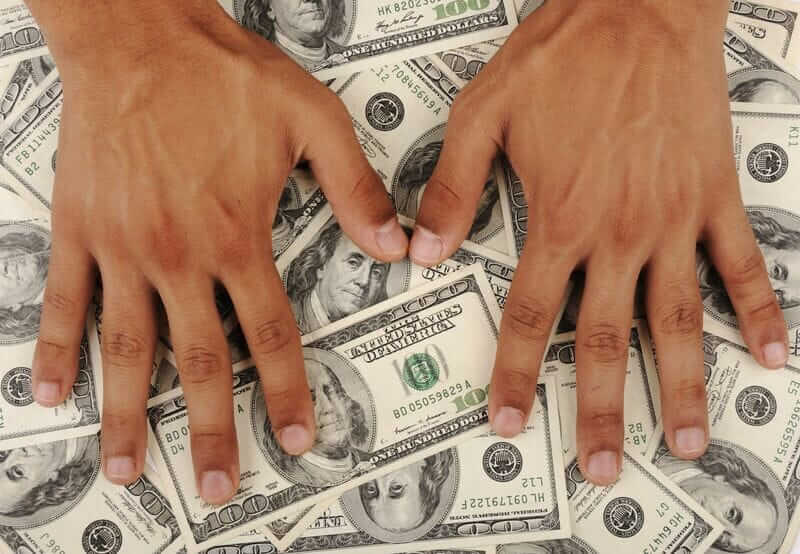
The dollar index (DXY00) on Wednesday rose by +0.13% and posted a 1-week high. Weakness in stocks on Wednesday has boosted liquidity demand for the dollar. Also, hawkish comments Wednesday from Fed Presidents Williams, Bostic, and Collins undercut precious metals when they said they favored waiting before cutting interest rates. Wednesday’s U.S. Q4 GDP report was mixed for the dollar after Q4 GDP was revised lower, but Q4 personal consumption and the Q4 core PCE price index were revised upward. A decline in T-note yields Wednesday limited the upside in the dollar.
Wednesday’s U.S. Q4 GDP report was mixed for the dollar. On the positive side, Q4 personal consumption was unexpectedly revised upward to +3.0% from +2.8%, stronger than expectations of +2.7%. Also, the Q4 core PCE price index was revised upward to +2.1% from +2.0%. On the negative side, Q4 GDP was revised downward by -0.1 to +3.2% (q/q annualized) from the previously reported +3.3%.
Atlanta Fed President Bostic said he's comfortable being patient in lowering borrowing costs as there's still work to do to return inflation toward the Fed's 2% target, and it may be appropriate for the Fed to begin cutting rates this summer.
New York Fed President Williams said the Fed still has "a ways to go" in its battle over inflation and will likely cut interest rates "later this year." He added that three 25 bp rate cuts in 2024 is a "reasonable starting point."
Boston Fed President Collins said inflation "remains elevated," and the path to a steady rate of 2% is likely to be "bumpy," and "when we see more evidence of a sustained trajectory to price stability, it will likely become appropriate to begin easing policy later this year."
The markets are discounting the chances for a -25 bp rate cut at 3% for the March 19-20 FOMC meeting and 19% for the following meeting on April 30-May 1.
EUR/USD (^EURUSD) on Wednesday fell by -0.08% and posted a 1-week low. Dollar strength Wednesday weighed on the euro. Also, an unexpected decline in Wednesday’s Eurozone Feb economic confidence report was bearish for the euro. Losses in the euro were limited by hawkish comments from ECB Vice President Guindos and ECB Governing Council members Kazimir and Kazaks, who said they favored the ECB waiting before it cuts interest rates.
The Eurozone Feb economic confidence index unexpectedly fell -0.7 to 95.4, weaker than expectations of an increase to 96.6.
ECB Vice President Guindos said, "When the data we receive on inflation, and underlying inflation, make it clear that we're approaching 2%, monetary policy will be modified."
ECB Governing Council member Kazaks said the ECB shouldn't rush to cut interest rates as doing so would risk harsher action being required later on.
ECB Governing Council member Kazimir said there's "no reason for the ECB to rush an interest rate cut," and he favors June for the timing of the first rate cut.
Swaps are pricing in the chances for a -25 bp rate cut by the ECB at 5% for its next meeting on March 7 and 32% for the following meeting on April 113
USD/JPY (^USDJPY) on Wednesday rose by +0.13%. The yen retreated to a 2-week low against the dollar Wednesday on dovish comments from BOJ Executive Director Shimizu, who said there hasn’t been enough certainty that the BOJ’s stable inflation goal will be achieved. A decline in T-note yields Wednesday limited losses in the yen.
The Japan Dec leading index CI was revised upward by +0.2 to a 14-month high of 110.2 from the previously reported 110.0.
Swaps are pricing in the chances for a +10 bp rate increase by the BOJ at 21% for its next meeting on March 19 and 89% for the following meeting on April 26.
April gold (GCJ4) on Wednesday closed down -1.4 (-0.07%), and Mar silver (SIH24) closed down -0.122 (-0.54%). Precious metals Wednesday posted moderate losses, with silver falling to a 2-week low. Wednesday’s rally in the dollar index to a 1-week high is bearish for metals. Also, hawkish central bank comments on Wednesday undercut precious metals. Fed Presidents Williams, Bostic, and Collins said they favored waiting before cutting interest rates, while ECB Vice President Guindos and ECB Governing Council members Kazimir and Kazaks also said they favored waiting before the ECB cuts interest rates. Silver also came under pressure after the U.S. Q4 GDP was revised lower, a negative factor for industrial metals demand.
On the positive side for precious metals is Wednesday’s decline in global bond yields. Also, the weakness in stocks on Wednesday boosted some safe-haven demand for precious metals. In addition, the ongoing geopolitical risks in the Middle East and Ukraine have increased safe-haven demand for precious metals.
On the date of publication, Rich Asplund did not have (either directly or indirectly) positions in any of the securities mentioned in this article. All information and data in this article is solely for informational purposes. For more information please view the Barchart Disclosure Policy here.






